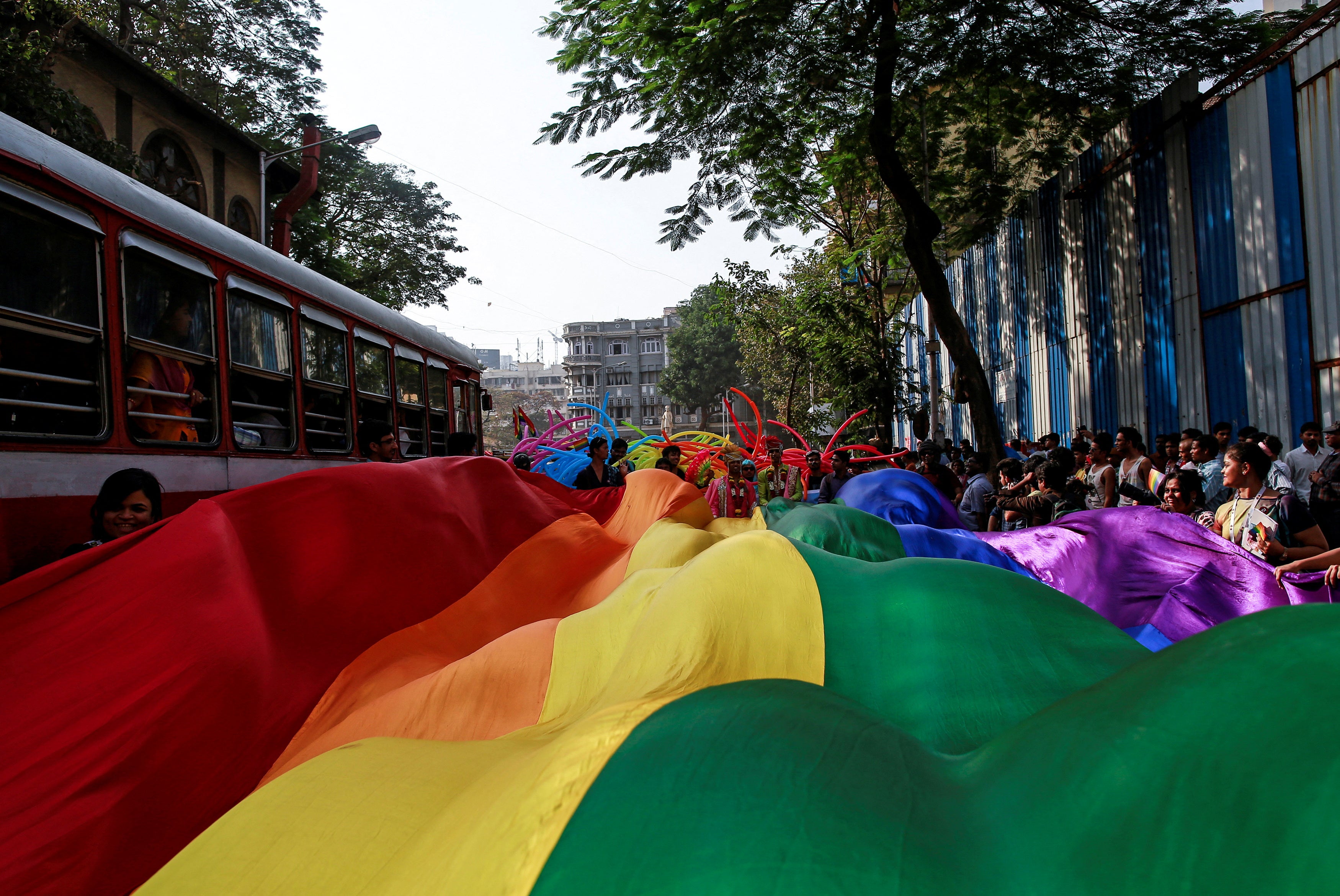India’s government opposes legalisation of same sex marriages
Any ‘deviation’ from current laws will wreak ‘havoc’ in the country, government says in court

Your support helps us to tell the story
From reproductive rights to climate change to Big Tech, The Independent is on the ground when the story is developing. Whether it's investigating the financials of Elon Musk's pro-Trump PAC or producing our latest documentary, 'The A Word', which shines a light on the American women fighting for reproductive rights, we know how important it is to parse out the facts from the messaging.
At such a critical moment in US history, we need reporters on the ground. Your donation allows us to keep sending journalists to speak to both sides of the story.
The Independent is trusted by Americans across the entire political spectrum. And unlike many other quality news outlets, we choose not to lock Americans out of our reporting and analysis with paywalls. We believe quality journalism should be available to everyone, paid for by those who can afford it.
Your support makes all the difference.India’s government has opposed the legal recognition of same-sex marriages by saying they are “not comparable” to traditional marriages, according to a filing made in the country’s Supreme Court.
The federal government’s 56-page filing in the country’s top court on Sunday was in response to legal challenges made in recent months by LGBT+ couples.
Activists are seeking changes in laws for the legal recognition of same-sex marriages. At least 15 pleas have been filed in the court, setting the stage for a legal battle with prime minister Narendra Modi’s government. The cases will be heard in the Supreme Court on Monday.
If the court recognises same-sex unions, it could mark a victory for LGBT+ rights activists in Asia as other countries in the region have decriminalised homosexuality but stopped just short of recognising same-sex marriages.
With a historic judgment in 2018, India’s Supreme Court scrapped colonial-era laws to decriminalise homosexuality but had not legalised same-sex unions.
The rationale given by the government in Sunday’s filing has been that there cannot be any “deviation” from widely accepted norms.
“Living together as partners and having sexual relationship by same-sex individuals ... is not comparable with the Indian family unit concept of a husband, a wife and children,” the government said.
The filing invoked the “accepted view” that marriage took place only between a man and a woman in India and is a “holy union, a sacrament” and has “sanskar [values]”.
Any “deviation” from this widely accepted norm in “human relationships” can only happen through the legislature and the court cannot be asked “to change the entire legislative policy of the country deeply embedded in religious and societal norms”, it said.
The government’s response to the 2018 landmark verdict on Sunday’s filing was that it did not mean a default recognition of same-sex marriage as a fundamental legal right in the country.
The government said that the court had never accepted gay marriage as part of the fundamental right to life and dignity – but at the same time, the state does not hold other forms of unions to be “unlawful”.
And added that any interference with current marriage laws “would cause complete havoc with the delicate balance of personal laws in the country and in accepted societal values”.
Several Asian countries have been gradually moving towards the acceptance of same-sex unions, as seen in landmark judgments in Japan and Singapore.
Taiwan became the first Asian country to legalise gay marriage in 2019. Singapore last year repealed a colonial-era law to legalise homosexuality but took steps to bar same-sex marriages. Thailand recently approved laws to allow such unions.
Japan is the only country among the G7 nations that does not legally recognise same-sex unions, although the public broadly favours recognition.
Join our commenting forum
Join thought-provoking conversations, follow other Independent readers and see their replies
Comments